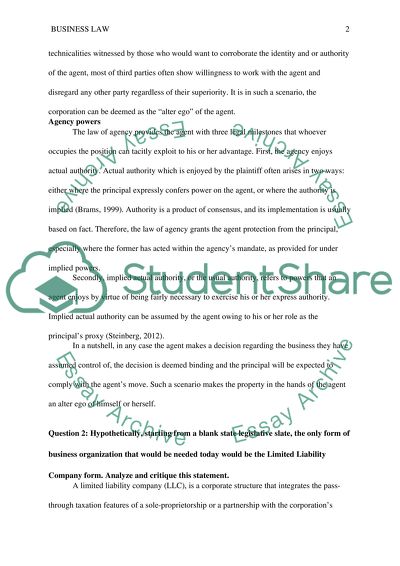Cite this document
(“Business Law Questions Essay Example | Topics and Well Written Essays - 2000 words”, n.d.)
Business Law Questions Essay Example | Topics and Well Written Essays - 2000 words. Retrieved from https://studentshare.org/law/1463790-business-law-questions
Business Law Questions Essay Example | Topics and Well Written Essays - 2000 words. Retrieved from https://studentshare.org/law/1463790-business-law-questions
(Business Law Questions Essay Example | Topics and Well Written Essays - 2000 Words)
Business Law Questions Essay Example | Topics and Well Written Essays - 2000 Words. https://studentshare.org/law/1463790-business-law-questions.
Business Law Questions Essay Example | Topics and Well Written Essays - 2000 Words. https://studentshare.org/law/1463790-business-law-questions.
“Business Law Questions Essay Example | Topics and Well Written Essays - 2000 Words”, n.d. https://studentshare.org/law/1463790-business-law-questions.


